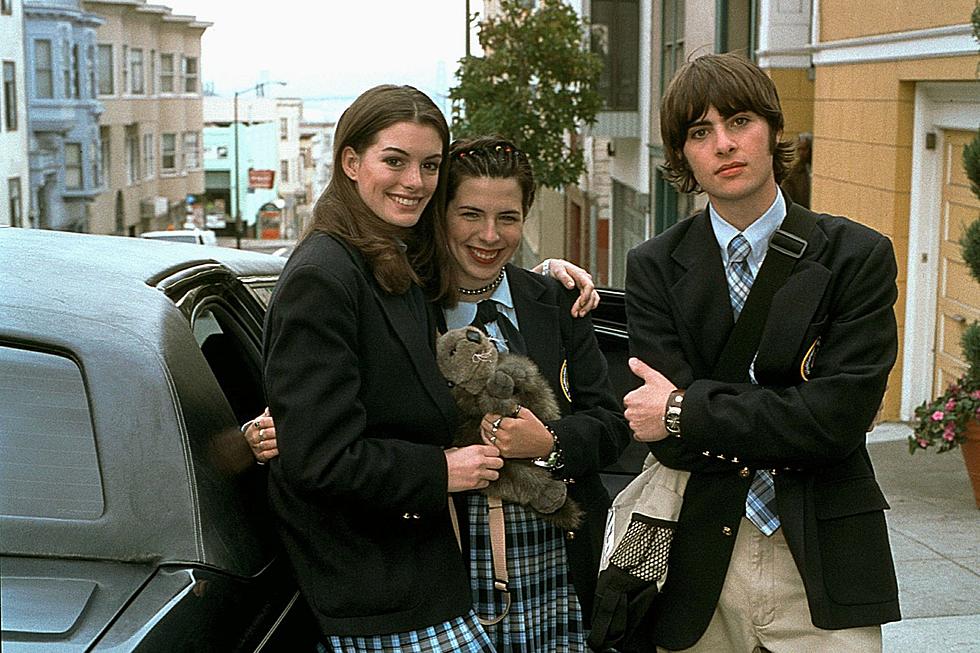
‘Red Sparrow’ Review: Jennifer Lawrence Ain’t a Mockingjay Anymore
No one is entirely who they appear to be in Red Sparrow, even the actors. Here is a movie about a romance between American and Russian spies, and the American is played by an Australian and the Russian is played by an American. That’s Joel Edgerton and Jennifer Lawrence, respectively, and they are pretty convincing with their respective accents trying to convince each other that their actions have pure motives.
Lawrence’s Dominika is a master ballerina whose career is ruined when her dance partner lands on her leg. Later, Dominika learns from her Uncle Ivan (Matthias Schoenaerts), a big-wig in the Russian Foreign Intelligence Service, that her partner broke her leg deliberately to give an opportunity to his girlfriend, her understudy. A furious Dominika promptly takes revenge against the couple. This may have been a test on Ivan’s part, and if it was, it worked. Gradually, Ivan maneuvers her into the world of international espionage.
First she’s ordered to seduce a corrupt businessman on Ivan’s behalf. Then she goes to train as a “sparrow,” Russian agents who use the art of “psychological manipulation” (i.e. sex) to extract information from targets. And finally she’s sent to Budapest, where she is assigned to get close to Edgerton’s CIA agent Nate Nash, the only man who knows the identity of a mole inside the Russian government. Inevitably, a relationship grows between Dominika and Nash, although the extent to which their feelings are genuine or a front designed to achieve their political goals is left to the viewer to guess until late in the film.
The love affair between secret agents is one of the oldest and most dependable plot lines in Hollywood. It has endured, I think, because it is the perfect forum to present a heightened version of the tensions inherent in every relationship between lovers: Can I trust this person? How do I know they won’t hurt me? Are they just using me to get what they want? Do they have my best intentions at heart? In a film like Red Sparrow all of those fears are compounded by the fact that both of these people have been trained to conceal their emotions, and to use their sexuality to manipulate others. Every time Dominika and Nash get close to one another, we wonder: What do they really want out of this? Their poker faces add an extra layer of suspense.
The scenes with Lawrence among the other sparrow recruits, featuring a chilling Charlotte Rampling as their Machiavellian teacher, strongly resemble the Aunt Lydia sequences from The Handmaid’s Tale, and throughout Red Sparrow there is an insistent subtext about the way women like Dominika are pressured and intimidated by men who want to exploit and hurt them. Every choice in Dominika’s life is determined by dudes; the ballet dancer who destroys her career; her uncle who forces her into, as she puts it, “whore school.” Even Nash, the seemingly altruistic American, pushes her to become a double agent. But Dominika is smart, and not nearly as helpless as she initially looks. There’s some dark fun in watching this perpetually underestimated dancer turn the tables on these chumps.
With her beauty, composure, and vulnerability, Lawrence is a perfect choice for her role. The way she deploys her feminine wiles to get what she wants and take agency over her life, not to mention her luxurious wardrobe and wavy hair, recalls some of the characters played by Marlene Dietrich, who had a knack for glamorous, powerful women. Unfortunately, Red Sparrow director Francis Lawrence is no Josef von Sternberg. Like most of his previous films (Constantine, I Am Legend, the final three Hunger Games), his choices are solid but rarely surprising, and despite a twisty storyline, a great cast, and two physically compatible leads, Red Sparrow never quite gets beyond being a merely okay thriller. (It’s also, at 139 minutes, way too long and slow for a taut spy adventure.)
This is Francis Lawrence’s fourth film with Jennifer Lawrence, and there are definitely some thematic parallels between The Hunger Games and Red Sparrow; they’re both stories about women pressed into the service of corrupt and exploitative governments, who eventually fight back and assert control over their lives. There’s an appealing empowerment message here, although some of the audiences who would be most receptive to that message might also be ones most turned off by the persistent and intense violence, and particularly sexual violence, against Lawrence in the film.
I liked Lawrence a lot, and Red Sparrow’s ending does deliver on the shocking revelations it’s promised. (It also leaves things wide open for a sequel, because of course it does.) But I also left the theater feeling like Red Sparrow was missing something, that spark of the ineffable that separates a competent movie from an exceptional one, or makes you rush out to see a new version of an old concept instead of rewatching classics like Notorious or Three Days of the Condor. There’s a sense throughout that everyone here is like Dominika when she’s forced to become a sparrow: Just going through the motions.
Gallery - The Best Action Movie Posters Ever
More From Newstalk 860










